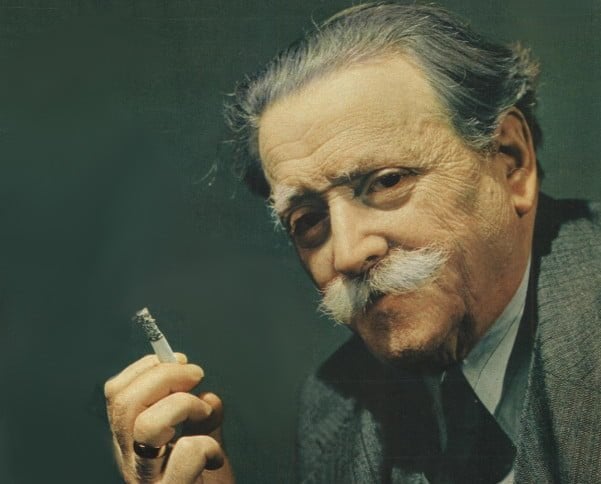Hitler, the most prominent face of Anti-Semitism, had a soft spot in his heart for a specific Jew. Who was this Jew, and how did he earn Hitler’s protection?
Dr. Eduard Bloch was the physician of the young Adolf Hitler and his mother. Dr. Bloch treated Hitler’s mother when she succumbed to cancer, charging reduced rates. He received special protection from Hitler.
Who was Eduard Bloch?
Eduard Bloch was born on January 30, 1872 in Hluboká nad Vltavou, České Budějovice District, South Bohemian Region, Czech Republic. He was the son of Jewish Veit Bloch and Franziska Bloch. Dr. Bloch studied medicine in Prague and served as a medical officer in the Austrian army. (Source: Spartacus Educational)
He opened a private doctor’s practice in Linz when he left the army in 1901 and soon developed a reputation as a good and compassionate doctor. Bloch did not hesitate to visit his patients in their homes.
In the thirty-seven years of his practice in Linz, Austria, he earned the title Poor Man’s Doctor, charging patients according to their financial status and often not receiving any payment. (Source: NCBI)
Bloch soon became the physician of Alois Schicklgruber, his first wife and two daughters, then consequently Alois’ second wife Klara and their two children, one of which soon became the Fuhrer of Germany. Bloch’s first encounter with Adolf Hitler was when he treated the young Hitler in 1904.
Hitler was bedridden and was thought to have pulmonary disease. Bloch soon uncovered it was the common cold and tonsillitis. It was also known the doctor did not charge the Hitlers because he was aware of their poor financial situation.
In 1907, Klara visited Bloch in his practice, complaining of chest pains. In her usual quiet and peaceful voice, Klara expressed great pain that kept her awake during the night. It was soon discovered that Klara had an extensive tumor on her breast.
She underwent mastectomy the same year; however, the operation and the subsequent treatment were unsuccessful. Klara Hitler passed away on December 21 of the same year.
Bloch once again joined the army in the first world war. He became the primary military doctor in the hospital in Linz. His wife joined him, volunteering as a red cross nurse in the same hospital. He then became a medical advisor after the war ended.
Bloch continued his medical practice until he migrated to the U.S. to join his daughter in Bronx, New York. He could no longer practice his field of expertise upon his migration as the U.S. didn’t recognize his medical degree. Still, in 1941, Dr. Bloch wrote an article in Collier’s Weekly titled My Patient, Hitler. The article caused controversy at the time, as the second world war started.
Dr. Bloch died on June 1, 1945, due to stomach cancer. Bloch passed away exactly one month after Hitler committed suicide in his Berlin bunker. (Source: LBV)
Edeljude
After Klara died in 1907, Hitler and Dr. Bloch parted ways, but numerous accounts showed Hitler’s deep gratitude to the doctor. Hitler moved to Vienna and started a career as a professional painter. From time to time, he would send Bloch postcards that he painted himself, often with the phrase Eternally Grateful or some context similar to it. (Source: LBV)
Soon after, Bloch and his family felt the effects of the growing Anti-Semitism in the region. It worsened in 1933 when the Nazis came to power. In 1938, the Anschluss took place, annexing Austria as part of Germany. The Jewish community soon felt physical and legal persecution.
But only a year before, Hitler, upon receiving delegates from Austria, inquired if Dr. Bloch was still alive and if he was still practicing medicine. Hitler stated that Dr. Bloch was a noble Jew or Edeljude. Hitler noted that if all Jews were like Dr. Bloch, there would be no Jewish question. (Source: NCBI)
The Bloch family was given special privileges. They were the only Jews who were allowed to keep their passports and their money. The Gestapo was ordered not to disturb the Bloch family, which was highly unusual at the time, even though the Bloch family took on displaced Jews under their care.
Hitler’s gratitude to Dr. Bloch was seen when Bloch asked, through Hitler’s sister, that they be allowed to sell their home at the market value and be allowed to migrate. They were allowed to relocate without any trouble, and the whole process was overseen by Martin Bormann. (Source: LBV)
